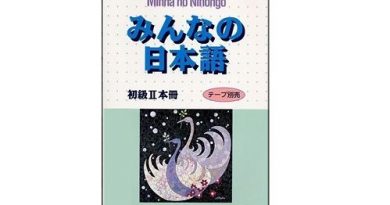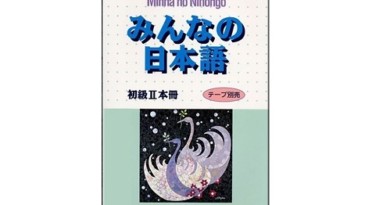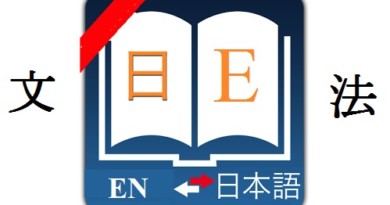Contents
3. Grammar
Potential form of verb
Group I: Vう becomes Vえる
Example :
| いく : to go | いける : can go |
| 飲む : to drink | 飲める : can drink |
| あう : to meet | あえる : can meet |
Group II: + られる。
Example
| たべる : to eat | たべられる : can eat |
| つける : to turn on | つけられる : can turn on |
Group III: します becomes できます
きます becomes こられます
Sentence containing potential form of verb
Meaning : can do something ~
Usage :
N を Vること が できます
N が V-in potential form
– Use to express abilities.
– Use to talk about actions that are allowed to perform.
– The particle を becomes が
– The verbs in potential form belong to Group 2
Example :
私は 日本語が 話せます。
Watashi ha nihongo ga hanasemasu.
I can speak Japanese.
私は日本語を 話すことが できます。
Watashi ha nihongo wo hanasu koto ga dekimasu.
I can speak Japanese.
~ がみえます/ 聞こえます。
Meaning : can hear/see something from somewhere
Usage :
With [聞く] and [見る], there are 2 ways to change to potential form. Both 2 ways have the same meaning (can hear/can see). However, there are differences between the 2 ways :
| 見られます・聞けます | 見えます・聞こえます |
| – Express intentional listening / seeing
– Express functions and tasks of an object – Be used to express ability or action that is allowed to perform Example : 映画館で フランスの 映画 が 見られます。 毎日、忙しいですから、テレビが見られません。 電話で ラジオが 聞けます。 |
– Express accidental hearing / seeing
– Not be used to express abilities Example : 部屋からカラオケの音が聞こえます 新幹線から富士山が見えます。 |
Use は with particle
Usage : Be added after a particle to emphasize something
Example :
私の学校には日本人の先生がいます。
Watashi no gakkou niha nihonjin no sensei ga imasu.
In my shool, there are Japanese teachers.
Note : With the particles such as が・を, we don’t add は after them to emphasize because が・を will be replaced with は
Use は to emphasize
N1 は ~ が ,N2 は ~
Meaning : N1 has ~ but N2 doesn’t have~
Usage : Used to emphasize the comparison
Example :
昨日は山が見えましたが、今日は山が見えません。
Kinou ha yama ga miemashita ga, kyou ha yama ga miemasen.
Yesterday we saw the mountain, but today we don’t.
~しか~ない
Meaning : Only ~
Usage :
– Express that there is only a little something or the regret of the speaker
– しか replaces が・を
– The predicate is always in negative form.
Example :
この字しか書けません。
Kono ji shika kakemasen.
I can only write this letter.
~ が できます
Meaning : have been finished/done
Example :
新しい家ができました。
Atarashii ie ga dekimashita.
Our new house have been done.
4. Kaiwa
何でも 作れるんですね。
nani demo tsukurerun desu ne.
鈴木: 明るくて、いい 部屋ですね。
Suzuki: akaruku te, ii heya desu ne.
ミラー: ええ。天気が いい 日には 海が 見えるんです。
Miller: ee. tenki ga ii hi ni ha umi ga mierun desu.
鈴木: この テーブルは おもしろい デザインですね。
アメリカで 買ったんですか。
Suzuki: kono te-buru ha omoshiroi dezain desu ne.
amerika de kattan desu ka.
ミラー: これは わたしが 作ったんですよ。
Miller: kore ha watashi ga tsukuttan desu yo.
鈴木: えっ、ほんとうですか。
Suzuki: e,, hontou desu ka.
ミラー: ええ。日曜大工が 趣味なんです。
Miller: ee. nichiyou daiku ga shumi nan desu.
鈴木: へえ。じゃ、あの 本棚も 作ったんですか。
Suzuki: hee. ja, ano hondana mo tsukuttan desu ka.
ミラー: ええ。
Miller: ee.
鈴木: すごいですね。ミラーさん、何でも 作れるんですね。
Suzuki: sugoi desu ne. mira san, nani demo tsukurerun desu ne.
ミラー: わたしの 夢は いつか 自分で 家を 建てる ことなんです。
Miller: watashi no yume ha itsuka jibun de ie o tateru koto nan desu.
鈴木: すばらしい 夢ですね。
Suzuki: subarashii yume desu ne.
Translation:
You can make anything.
Suzuki: That’s a bright and good room.
Miller: Yeah. We can see the sea on a sunny day.
Suzuki: This table has an interesting design.
Did you buy in the United States?
Miller: I made this.
Suzuki: Eh, really?
Miller: Yeah. My hobby is being a weekend carpenter.
Suzuki: Well, did you also make that bookshelf?
Miller: Yes.
Suzuki: That’s great. Mr Miller, you can make anything.
Miller: My dream is building a house by myself someday.
Suzuki: That’s a wonderful dream.
Please see the renshuu section on the next page.


